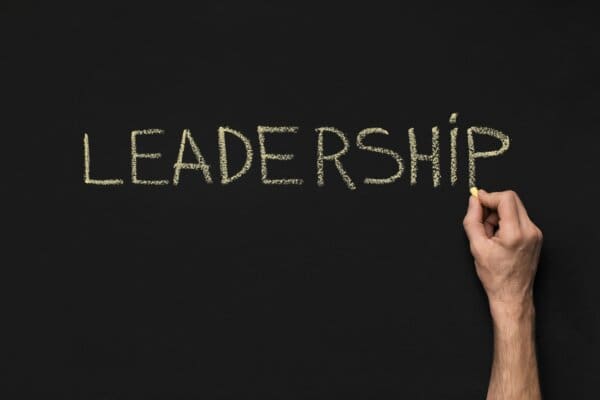What Does The Future of Leadership Look Like?
Passionate, talented, hard-working, and unconventional people have always been at the forefront of progress and have been leading humankind into the future for centuries. When it comes to business, certain figures definitely stand out – these are the future leaders who are some of the most influential people in business today (and will be tomorrow).
But what does it mean to be the future leader and what does the future of leadership look like? Here’s everything you need to know about business leadership right now and what it will look like in the nearest future.
What Skills Should a Leader Have?
First and foremost, it is crucial to understand what makes a good leader and what leadership is all about. There is a particular set of skills that every leader must possess to succeed at their job. These include:
- Decision-Making: All leaders have to make decisions on a daily basis. Some of these could be very small while others could impact the entire company which is why leaders should always take responsibility. To be good at decision-making, leaders need to be decisive and have to develop different skills such as problem-solving, critical thinking, and analytical skills.
- Relationship-Building: You can only be a leader if there is someone to lead which is why all good leaders need to be good at relationship-building. This applies both within your company where team-building and teamwork are key and outside of it where diplomacy and professionalism are crucial. Focus on skills such as collaboration, management, interpersonal skills, communication, active listening, sociability, ethics, and honesty among others.
- Dependability: As mentioned above, leaders have to take responsibility for the decisions they make, but even beyond that, they need to be dependable. Your team should trust you and be willing to rely on you. This is why you need to show integrity and take initiative. Moreover, you should also set realistic goals and expectations, always be on time, and be detail-oriented.
- Mentorship: While not every leadership style requires you to be a mentor, having this skill is still very important to be a successful leader. You should be able to teach and mentor your team members, motivate and inspire them, help them when they are in need. Likewise, you should also be able to understand their differences and recognize and reward them at the right time.
What Are the 5 Qualities of a Good Leader?

In addition to having a particular skill set, good leaders should also possess a number of personal qualities or characteristics. These allow leaders to excel at what they do and to constantly improve themselves as individuals and as leaders. Here are the 5 qualities every good leader should have:
- Self-Awareness: First and foremost, good leaders are self-aware and take the time to study themselves and analyze their own actions. By self-reflecting on who they are and what they do, they are able to identify their strengths and weaknesses and then use this knowledge effectively. Moreover, good leaders are also the ones who work on their weaknesses and prioritize personal development.
- Development of Others: In addition to developing themselves, successful leaders are also selfless to a degree and pay attention to those around them. They help others develop and grow both as individuals and as professionals. Leadership is both about improving yourself and about helping others improve with you.
- Encouragement of Innovation: While good leaders are usually the ones who take initiative, they don’t shy away from letting others do so. They encourage innovation and welcome action from their teams. After all, if your team members are passive and you are the only one trying to do anything actively, you likely won’t succeed as a leader. Likewise, progress doesn’t just arise from a single person – it is often a team effort and comes from both you and those around you.
- Ethical Thinking: Being self-aware is one thing but being aware of your surroundings is also necessary. This is why successful leaders are the ones who practice ethical thinking and have a moral code they follow. They always consider the ethical consequences of the decisions they make. These decisions can impact themselves, their team, their customers, and their business partners.
- Cross-Cultural Communication: Speaking of business partners, good leaders are also the ones who practice cross-cultural communication effectively. They are able to communicate successfully both within and without their companies to develop long-term relationships with all kinds of people.
What Are the 3 Most Important Roles of a Leader?

Even though you are a single person as a leader, you still need to take on a variety of roles both on a day-to-day basis and on a much bigger scale. Successfully taking on these roles can determine where your company is headed as well as how you grow professionally as an individual. The 3 most important roles of a leader include:
- The Visionary: Though you are making decisions that solve current problems, you need to realize that these decisions will have a long-term impact. This is exactly why every successful leader is a visionary. A good leader has a vision for their own future and for the future of their team. Only with a clear vision will you be able to get your company to the level of success you want it to achieve.
- The Strategist: Another important role good leaders should be ready to take on is that of the strategist. While a vision is what fuels your work, a strategy is what sustains it. In other words, your strategy is a plan of action that enables you to achieve your vision. This is why these two roles are so closely connected to each other and should be embodied by a single person – a truly great leader.
- The Advocator: The third key role leaders have to perform is that of an advocator. As an advocator, you need to find the best people to perform the right tasks. Moreover, you need to be an advocator for them, somewhat like a spokesperson. Likewise, you need to support them and help them realize their potential.
Sticky Learning ® is 7 times more effective than 1-day training courses. Plus, you will get a Chain of Evidence proving your Return on Investment. Discover soft skills training that changes behaviours long term.

What Are the 4 Types of Leadership?
Every leader is different due to their personal characteristics, life circumstances, and so on. However, there are still several distinct styles or types of leadership that are common:
- Autocratic/Authoritarian: This kind of leader aims to keep all the power in his own hands. All the authority and responsibility stay with this kind of leader – employees don’t really have a say in anything. There are three subtypes of this kind of leadership. Hard-boiled autocrats rely on fear and punishment to control their employees; benevolent autocrats rely on rewards and incentives; manipulative autocrats allow employees to participate in discussions but perform all the decision-making themselves.
- Democratic/Participative: Contrary to authoritarian leadership, there is the democratic or participative type. Such leaders aim to decentralize authority and power, allowing employees to participate in planning and policy-making alike. Democratic leaders want to set an example and lead through persuasion, not by force or fear. Moreover, they actively involve others in the decision-making process. This type of leadership allows employees to feel more valued and engaged as well as more motivated and inspired.
- Laissez-Faire/Free-Rein: Though such leaders may be similar to the democratic type, they are actually quite different. Laissez-faire leadership is hands-off. Such leaders avoid responsibility and power preferring not to interfere much. They let others make decisions and take initiative as much as possible. They don’t even give any directions – the group needs to establish its own goals and solve its problems.
- Paternalistic: Just as the name suggests, paternalistic leaders act as father-figures for their team. Such leaders want to guide and protect their team members while treating them like family. Employees are expected to work harder out of gratitude, though in some cases, the response can be the complete opposite because not everyone likes being looked after at work in such a way.
What Does the Future of Leadership Look Like?

Now that we’ve discussed the present state of leadership and what it means to be a leader, it’s important to explore what the future of leadership looks like. Karen O’Connor, an expert from the best online essay services reviews site, says, “It is not entirely clear what leadership will be like in the future, but there are some obvious trends already influencing the way it develops.” The 6 trends shaping the future of leadership are:
- AI and Technology: Undoubtedly, new technologies and Artificial Intelligence have had a massive impact on the business world at large. Likewise, they are impacting leadership as well with new opportunities and fears alike arising every year.
- Acceleration: With the progress brought on by new technologies, the world has seemingly started accelerating. Leaders now have more problems and less time to solve them which requires even more hard work and dedication to their jobs.
- Purpose or Meaning: Unlike before, simply offering a good salary is not enough. More and more employees now want to have a purposeful or meaningful job – and leaders should reflect this change in the way work is approached by new generations.
- New Talent: Speaking of new generations, younger professionals are entering the workforce now and changing the talent landscape. Diversity and inclusion are prioritized with companies constantly looking for skilled workers.
- Morality and Ethics: Another priority for companies is that of transparency. Morality and ethics are now taken into account more often than before and leaders are expected to lead accordingly.
- Globalisation: It goes without saying that we now live in a globalized world where everyone is more connected than ever. This is why leaders need to keep in mind the bigger picture when planning their strategy.
What Type of Leadership Will Organizations of the Future Look For?
Leaders of the future will likely be quite different from one another, but what exactly will organizations be looking for? In most cases, it will likely come down to a leader’s mindset that will set them apart. The way a person thinks could make a huge difference. The most in-demand types of leaders will likely be:
- Global Citizens: Leaders who think globally and embrace diversity. They realize the importance of globalization and take advantage of it. They understand and embrace different cultures, expand to foreign markets, and work with diverse teams.
- Servants: Leaders who go against the traditional notion of leadership. They practice humility and prioritize their employees above all else. They want to elevate their company by elevating their employees and their customers.
- Chefs: Leaders who balance humanity and technology. They embrace the changes new technologies bring and use them to maximize the results of their team’s efforts.
- Explorers: Leaders who are unafraid to take a step into the unknown. They are eager to experiment and try new things. They are constantly curious about the world and the opportunities it presents.
What Skills Will Leaders Need in the Future?

In addition to certain mindsets, leaders of the future will need to possess a number of skills. While you will still need the skills that leaders are currently expected to have, you will also need to acquire these other skills as well (or develop them in yourself if you already have them to some extent):
- Coaching: Leaders should be able to motivate and inspire their teams as well as coach and mentor them. They need to engage with their teams and appreciate their team members as individuals.
- Futuristic Thinking: Leaders should always plan ahead and ensure that what the future brings isn’t a huge surprise to them or their teams. They need to be aware of the latest trends and willing to try new things.
- Tech-Savviness: Leaders should be tech-savvy, even if their position doesn’t require them to work with technology closely. They need to understand the importance of the Internet and should be fluent digitally.
- Translation: Leaders should take the steps to learn languages and become better communicators. They should study both verbal and non-verbal communication to better understand people and build relationships.
- Emotional Intelligence: Leaders shouldn’t shy away from being emotional and should understand how feelings and emotions work. They should be empathetic as well as self-aware.
What Does It Mean to Be a Future Leader?
Last but not least, what does it mean to be a future leader? Here are the key points you need to remember about:
- Have A Vision: Have a vision for yourself, your team, and your company. What do you want to achieve? Do you have an ultimate dream? What is the plan to achieve this?
- Have Influence: Have real influence as a leader, even if it takes you time to start having such influence. Influence people, inspire them, motivate them, and make them want to be better.
- Work Hard: Have a “work hard” mindset and stick to it no matter what. Once you have a vision and a plan to achieve it, start working hard towards your goal. Be ready to sacrifice some things along the way.
- Have Integrity: Have your own character and integrity. Stick to your beliefs and don’t let anyone else shame you, tell you what to do, and so on.
Conclusion
At the end of the day, the future of business leadership is still uncertain. While we can only make predictions and guesses about what business will look like in a year or a decade, it is certain that true leaders make the future. They shape it according to their own vision and always strive for progress and innovation.
If you want to become the leader of the future, it is crucial to invest in yourself and focus on leader development to become the best version of yourself as a professional. Many people start from zero, but there are so many opportunities nowadays that becoming a successful leader is definitely possible.
Action: For even more useful content on leadership, check out our ultimate guide on Leadership Skills.




